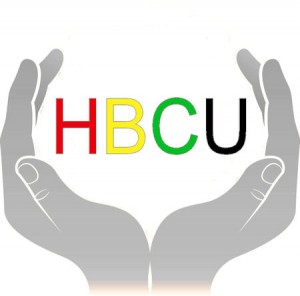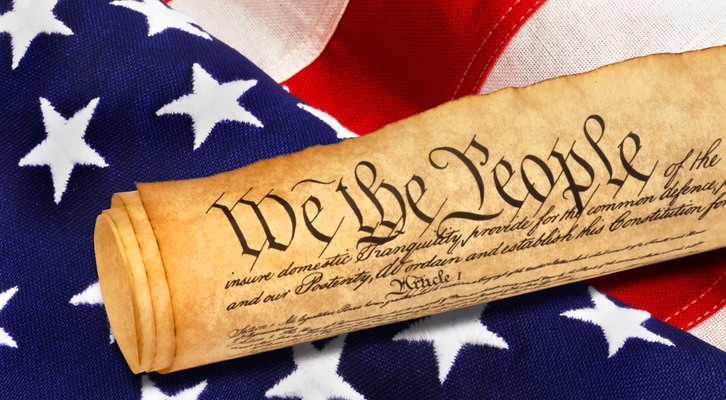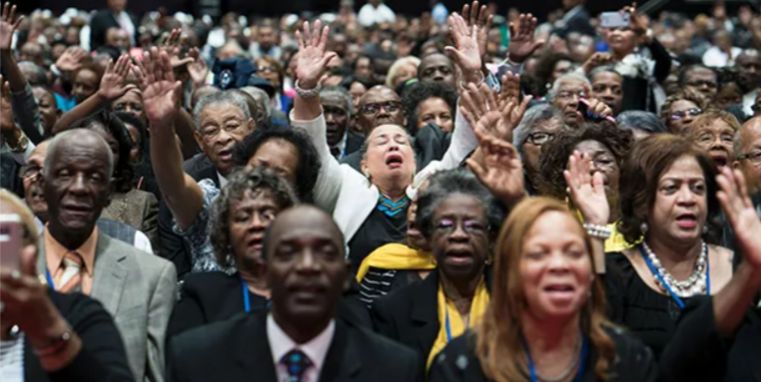(ThyBlackMan.com) Several blog postings ago, I promised to share my thoughts about what I believe HBCU alumni can do to support their alma mater. As we enter 2015, a year filled with unlimited possibilities, today seems like an excellent time to discuss how we can support in a more comprehensive manner the institutions that helped make many black baby boomers successful professionals in literally every field of endeavor. Now is the time to wipe clean the slate of missed opportunities and good intentions and to focus on what we will do to elevate HBCUs to a higher place on our 2015 to do list. If the national media coverage about the uncertain future of South Carolina State University isn’t enough to get the attention of HBCU graduates, I am not sure what will.
Through my extensive HBCU advocacy and consulting activities in 2014, I became even more convinced that advocacy is one of the most important, yet unexploited, ways for HBCU graduates to assist their alma mater. To be effective, however, alumni advocacy must be informed and strategically focused. Advocates must be able to communicate in clear and compelling ways the contemporary value proposition of their alma mater, not a 1950s or 1960s version of the institution’s significance in an era when separate but equal was the law of the land. In my experience, not many higher education coordinating boards, commissioners, state legislators, foundation or corporate officials are sympathetic to the argument, however true, that the cumulative effects of historic under-funding stymied the development of HBCUs and created today’s competitively  disadvantaged playing field. Many such individuals, as well as the parents of prospective students, see HBCUs as anachronistic relics of the past.
disadvantaged playing field. Many such individuals, as well as the parents of prospective students, see HBCUs as anachronistic relics of the past.
Being an informed HBCU advocate requires knowing today’s value-added dimension of ones alma mater and being able to articulate why its vitality matters. Survival is not enough; HBCUs must be relevant, responsive and competitive institutions that actively seek to attract students from all racial, ethnic and cultural backgrounds. To ensure that alumni convey with accuracy and passion a coherent message through their advocacy efforts, HBCU leaders must provide them with the requisite talking points on the one hand, and be prepared to provide detailed information as the need arises, on the other.
If inaccurate or outdated information is provided, alumni advocates can cause more harm than they do good in garnering institutional support. Speaking from my experience as a three-time chancellor, and as an alumnus of three different institutions, I can assert with a fair amount of confidence that most universities do not do a particularly effective job of keeping students, faculty, staff, community, corporate leaders or alumni in the loop when it comes to critical issues facing the institution. Too often it seems that alumni are forced to rely on media sound bites, short newspaper articles or the “grapevine” for university updates. Too often it is not until issues reach a crisis level that campus leaders reach out to key stakeholders.
Second only to the need for HBCU advocates to be informed, it is essential that their advocacy is focused on a specific issue or issues. Further, once a compelling message is crafted, with the guidance of university leaders, it is essential that all advocates receive training before commencing any formal advocacy activities. It is equally important that effective feedback mechanisms be put in place to allow follow up by the university if necessary. Given the economic impact of most HBCUs on the community in which they are located, university leaders should not hesitate to tap local business executives, elected and civic leaders, chamber of commerce officials as well as students to advocate on behalf of the university.
During my chancellorship at two PWIs and vice president of a large public research university, I found that alumni advocacy worked effectively. In fact, more than anything else, it was the implementation of a comprehensive advocacy strategy that led to increases in state and private funding for new facilities, equipment and academic programs.
As I reflect on the state of Affairs at South Carolina State University, I believe there are four things alumni and others who care about the institution can do to support it. First, advocate on behalf of the institution in the halls of the state legislature. Second, encourage college-ready prospective students to apply and enroll. Third, contribute funds for student scholarships and financial aid. Fourth, share their professional expertise with the university as it seeks to implement state of the art business processes and practices to ensure compliance with the various state, federal and accreditation standards.
Finally, advocacy alone has limited value. Institutions must be led by competent executives and they must produce graduates with a credential that has value in the market place. HBCUs do not deserve support just because of their existence; they deserve the support of their alumni because of what they have done, are doing and are capable of doing.
Written By Charlie Nelms, Ed.D.
















I do not think HBCUs would be necessary if society would just tell the whole truth. Including who discovered the Coca Cola formula, who created the traffic light and that Columbus did NOT discover America.
Here are the problems I have with HBCUs.
1. They are discriminatory. If white people openly declared they were opening a “white school”, we would scream bloody racism and segregation. So I do not think it is fair (though necessary at the moment) to have “black” schools.
2. HBCUs further feed into separation by color. We have learned that when it’s separate, it’s never equal so I suggest integration as the plan. Were “whites only” schools desegregated just so we could turn around and go right back to “black” schools? That is just like being able to sit anywhere on the bus but then choosing to go to the back. Is it that much better if you have a choice? You are still in the back.
3. Generally HBCUs cannot compete on a national level in many areas. Instead of learning how to play the game set up by white people in society, we make the mistake of trying to create our own game. Yet they control the corporations, the government and the currency. You will never beat the creator of a game unless you learn his game and apply the rules even better than he does.
4. Our tax dollars pay for us to go to State schools so our children have every right to be there and we should take advantage of that. Even if it’s just for the purpose of learning and infiltration like the Japanese did after World War II, we have to learn how to play the game from those teaching the game.
5. What HBCUs instill (pride, honor, dignity, appreciation of our own) should be instilled first as home by parents, not by educators. That is not the core responsibility of education. That in fact is aiding in the development of a value system and that is not a school’s primary role. Parents need to wake up and be parents.
6. HBCUs cost far too much. Because they are private, many HBCUs do not get the funding that is given to public colleges and universities. The tuitions are so high in HBCUs commonly that the student comes out buried in debt several times over. It thus puts a strain on the parents and the students for years to come.
7. This country is not a great big HBCU and its time students learn interaction with all races, cultures and ethnicities. To keep our young people in a “black box” is to limit the very interaction they will have to face one day anyway. I have seen hundreds of students from HBCUs behave awkwardly around “white” people or other ethnic groups. You cannot hide from the world you must interact in, so why separate ourselves and try to?
8. Ironically some HBCUs were not even set up by us. Morehouse College, Spelman College and Clark College, for example, were set up by “white” Methodists for us. And the only one of the colleges in the Atlanta University Center set up by “us” went bankrupt amidst embezzlement, scandals and mismanagement of funds.